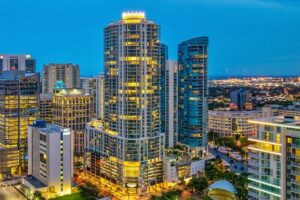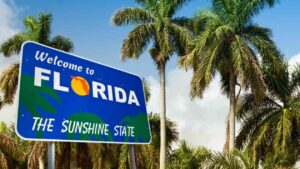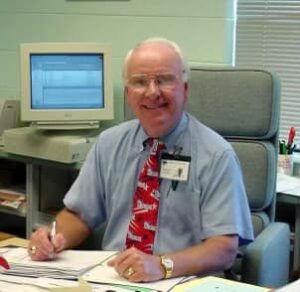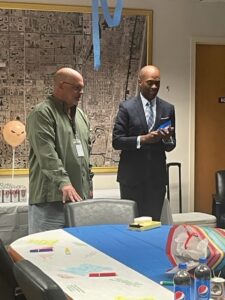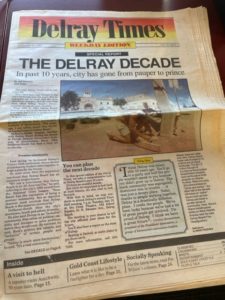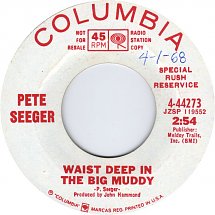
The Dunlop Maxply Fort was a classic of the era. The iconic racquets sell for over $300 online.
Note: We’ve been engaged in a little bit of spring cleaning lately and I’ve finally worked up the will to dive into some boxes that have been stacked in the garage for ages. I’m not a hoarder (well, maybe a little bit), but I do manage to accumulate a lot and until recently I haven’t wanted to go through these “collections” of memorabilia and mementos to see what should be kept and what should be tossed. I can’t say it’s easy throwing away articles I’ve written during my newspaper career or old photos, but it’s gotten easier. After all, nobody is going to want these things and they are taking up space so it’s off to the recycle bin you go. Still, amidst the litter of life, you find some things that you forget about. Here’s an essay I wrote decades ago hoping it would be published in Newsday, the paper of record for Long Island. P.S. I never sent it.
“8.09 acres at the southeast corner of Oxhead Road and Pembroke Drive from J-3 Business to D-1 Residential.”
That was the way the day started. One seemingly innocuous sentence, buried in a Newsday round-up of zoning changes.
But the two sentences stung me. The 8.09 acres at the southeast corner of Oxhead Road and Pembroke Drive were the most important acres of my childhood. They were the site of the Stony Brook Swim & Racquet club –the place where I spent six glorious and formative summers.
Somehow, I thought “the pool club” would survive forever. In a way it will, in the memories of hundreds of families who spent precious summers together in an idyllic spot on the north shore of Long Island.
Even though the pool club had been gone for years (the owner converted it into a summer camp), the grounds remained untouched. The club was pretty much the same as it had been during its glory days in the mid-70s. I had seen to that on my infrequent visits home. I always made sure to visit the club, park the car, and reminisce.
Oh, the 13 clay tennis courts were memories once the club closed. But the venerable paddle ball courts, the snack bar, gazebos and concrete kickball court all remained.
I knew every inch of that place—from the “Savodnik” tree named after my best friend’s family who loyally set up camp under it every summer, to the storage sheds deep in the woods where we would take our summer love interests to share that first kiss.
I knew where every family sat. The Mah Jongg players would sit underneath large umbrella’s shuffling tiles for hours and hours interrupted only by our anxious pleas for change so we could raid the snack bar for Charleston Chews and cold drinks.
Then there were the tennis players. They would sit poolside, sporting world class tans except for their feet. Their feet were white as the sand on the finest beaches. The mark of a serious tennis player was white feet. If you had them, it meant you were out on the court polishing your game; too busy to get a total tan. For six years my feet were as white as could be, covered by ankle socks as I wore out my Stan Smith Adidas shoes.
Over at the paddle ball courts were the middle age war horses with names like Murray, Stu and Herman. They didn’t mess with tennis, preferring instead to duke it out on the paddle ball walls.
Paddle ball was a city game. We were in the burbs, but the tough men with the leathery skin could be found on the paddle ball courts. These guys were my favorites and I loved watching them risk life and limb diving on the hard concrete courts to “kill” a little black ball.
The paddle ball players were early heroes and I dreamt that someday I’d be good enough to compete with them. When that day came, it was much sadder than I thought. The old war horses were good, but we were younger and quicker. Somehow that made me sad.
Tennis was winning the hearts and minds of my little pool club world. It was the “tennis boom” of the 70s and people like Jimmy Connors and Bjorn Borg were bringing the country club game to the masses.
If you grew up on Long Island in those days, you played tennis.
As for me, I threw myself into the game with reckless ambition. I played about every waking hour.
And when I wasn’t at the club, I was out front of my Levitt house pounding the ball mercilessly against the garage door. I would do this until my mother opened the window and begged me to stop. I couldn’t get enough of the game. I woke up early, put my tennis clothes on and waited impatiently for my mom to get ready so we could go to “the club” and I could hit the courts.
Around this time, the pool club changed.
Tennis had its own caste system and status was measured by the type of racquet you used. A Dunlop Maxply and Arthur Ashe Head Competition were paths to instant popularity. These racquets exuded cool. They were, in a word, iconic.
When tennis kicked in, suddenly the four hard courts at the pool club weren’t enough. It was clay courts or bust.
When I look back—as much as I love tennis—the popularity of the sport hastened the death of the club.
The club’s owner decided to add 13 har-tru courts and to allow for separate pool and tennis memberships.
At first, the addition of the soft clay-like courts seemed to uplift the place. We were no longer a distant second to some of the posh country clubs in Setauket and Old Field. The not quite ready for white collar kids from the Levitt homes could match strokes with any blue blood this side of Poquott.
But the incision was made, and the distinction between “family swim club” and big-time tennis was uneasy.
Then it happened.
Suddenly, one summer, we were the oldest kids around. In fact, there were hardly any kids at all. The area was changing, getting older and younger at the same time. Moms were heading back to work, and a different lifestyle was taking root. There were different ways to spend the summer in my hometown.
When the reality hit us—that this would be the last summer at the club—we didn’t mourn.
When you’re 15, you live to move on. You never glance back. It’s only when you’re older that you realize how good you had it and how you wished you had savored it more.
So, we walked the grounds of the pool club that last Labor Day—every inch of the place recounting only that summer.
We did it every Labor Day and this would be no different, even though it would be the last time.
There was no talk of the grizzled paddleball players who left the summer before. Their time had passed, like a soft summer breeze.
Gone too were the pretty girls who used to walk from the pool to the snack bar. They started going to the beach and so we would we in our never-ending effort to find romance.
The Mah Jongg players traded their tiles for jobs, and we all went to the Mall.
I feel fortunate to have spent ages 8-15 at the club. I shared tennis with my dad, and we grew closer. I spent every day in the same place as my mom and my sister and that meant something. Even though we didn’t hang out, I knew they were there. We had a daily destination as a family.
I met three of my closest friends at the club, friends I’ve kept to this day.
And, quite possibly, I fell in love for the first time at the pool club (although the relationship was innocent and lasted a scant few weeks). Puppy love is a better word for it.
I feel sad that families don’t have a destination to go to everyday; a place to be together with other families. I always had a vision of myself staring through a ragged chain link fence, looking in at the club years from now— wife and kids tow— explaining that this was where it all happened. The beginning of an aborted tennis career, my first kiss, my first standoff with a bully. It would be fall, when I looked through the fence. The leaves would cover the faded kickball court. But it would all be there. The gazebo, the snack bar, even the Savodnik tree. All there so I could look back and remember.
Funny, how a zoning change can ruin your day.
Thanks for a Job Well Done
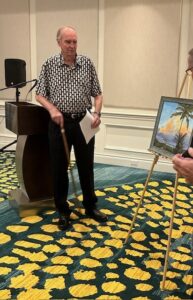
Retiring BPOA President Bob Victorin was presented with a beautiful painting by gifted local artist Ernie DeBlasi.
Last week, the Beach Property Owners Association honored outgoing president Bob Victorin for his lengthy and distinguished service to the 55-year-old civic association.
I was honored to say a few words of praise. In Bob’s case it was really easy because he’s terrific.
Here’s a snippet of my remarks. We wish Bob and his lovely wife Jan health and happiness in the years ahead.
“I was fortunate to work with the two Bobs, Mr. Victorin and Bob Sparvero during my tenure on the city commission. They were wonderful people to work with and together we navigated through some tricky terrain: several hurricanes, a comprehensive beach restoration project, design guidelines, a downtown master plan and my personal favorite —the great bike lane debate sparked by the redesign of A1A by the Florida Department of Transportation.
Through every issue, through every controversy, Bob Victorin exhibited remarkable leadership skills.
He was fact-based, kind, respectful and courteous. In a word, Bob Victorin is a gentleman.
That kind of leadership has almost gone out of style these days. But Bob’s style of leadership has been immensely effective. He has been a wonderful advocate for the BPOA, a passionate protector of the barrier island and an invaluable contributor to Delray Beach.
This organization has been remarkably successful because of leaders like Bob Victorin. Over the years, I got to know and work with Betty Matthews, Frank Boyar, Bernie Dahlem, Frank DeVine and Andy Katz.
Like Bob, they were strong leaders and wonderful diplomats. In Frank Devine’s case, he was actually a former Ambassador to El Salvador.
Bob followed in those footsteps and really helped the BPOA flourish in terms of membership and importance.
When residents expressed a desire to have design guidelines, the BPOA took the lead and created a template that was looked at by other neighborhoods in the city.
Bob was a participant in every citizen goal setting session we held while I was on the commission giving his time and energy to make sure we were taking the needs of the barrier island into consideration. He was a voice of reason as we worked with the state to redesign A1A, balancing the needs of businesses, bicyclists, and coastal homeowners.
My colleagues on the commission deeply admired and appreciated Bob. So did city staff. He’s a pleasure to work with and because he’s a pleasure to work with— he’s been incredibly effective.
I’m happy to say we’ve stayed in touch through the years. Elected officials like me, come and go, but Bob stayed on and happily remained a friend. We share a love of music (he once gave me a bunch of CD’s of his favorite songs that I still play)…. we share a love of community and we’ve enjoyed a cocktail or two through the years.
Bob you are a very special man, I also want to acknowledge your lovely wife Jan. As we both know, it would be impossible to spend this kind of time doing community work without the support of our loved ones.
Bob and Jan, Diane and I wish you the very best in the years to come. From the bottom of our hearts, thank you.

